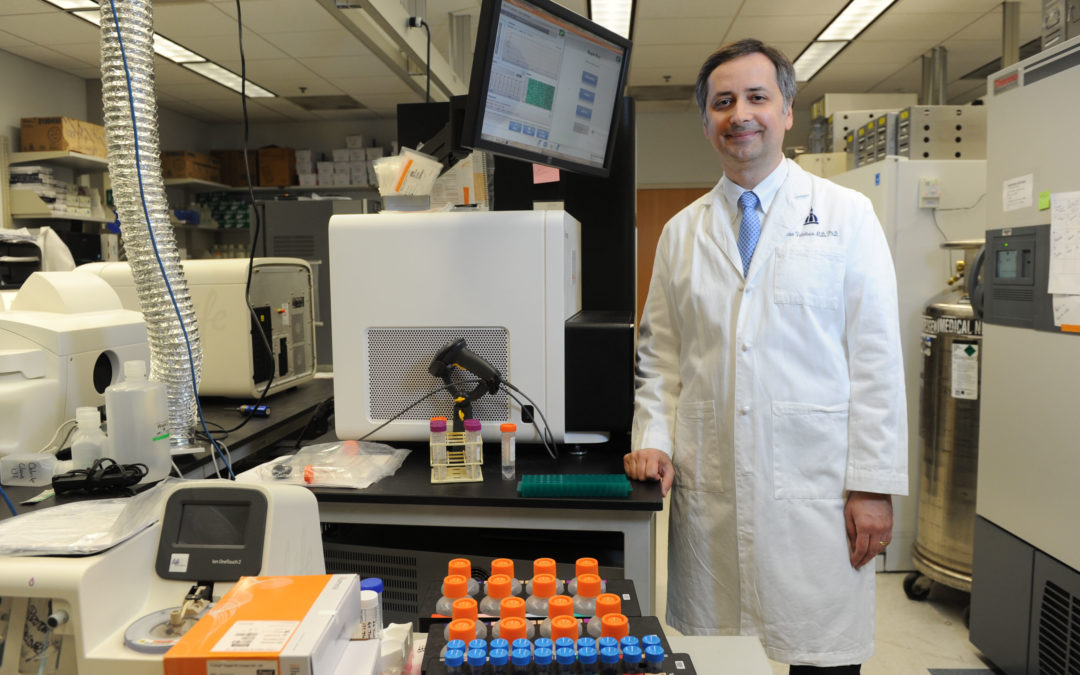Article by ScienceDaily / Johns Hopkins Medicine | May 29, 2019
EXCERPT: “Researchers at the Johns Hopkins Kimmel Cancer Center have developed a simple new blood test that can detect the presence of seven different types of cancer by spotting unique patterns in the fragmentation of DNA shed from cancer cells and circulating in the bloodstream.
In a proof-of-concept study, the test, called DELFI (DNA evaluation of fragments for early interception), accurately detected the presence of cancer DNA in 57% to more than 99% of blood samples from 208 patients with various stages of breast, colorectal, lung, ovarian, pancreatic, gastric or bile duct cancers in the U.S., Denmark and the Netherlands.
DELFI also performed well in tests of blood samples from 215 healthy individuals, falsely identifying cancer in just four cases. The test uses machine learning, a type of artificial intelligence, to identify abnormal patterns of DNA fragments in the blood of patients with cancer. By studying these patterns, the investigators said they could identify the cancers’ tissue of origin in up to 75% of cases.
A report on the research is published online May 29 in Nature.
Blood tests, or so-called ‘liquid biopsies’ for cancer detection typically look for mutations, which are changes in the DNA sequence within a cancer cell, or for methylation, a chemical reaction in which a methyl group is added to DNA, says senior study author Victor E. Velculescu, M.D., Ph.D., professor of oncology and co-director of the Cancer Biology Program at the Johns Hopkins Kimmel Cancer Center. But not all cancer patients have changes that are detectable using these methods, he says, and there is a great need for improved methods for early detection of cancer.
DELFI, he says, takes a different approach, studying the way DNA is packaged inside the nucleus of a cell by looking in the blood at the size and amount of DNA from different regions across the genome for clues to that packaging…”
Read the full article here.

